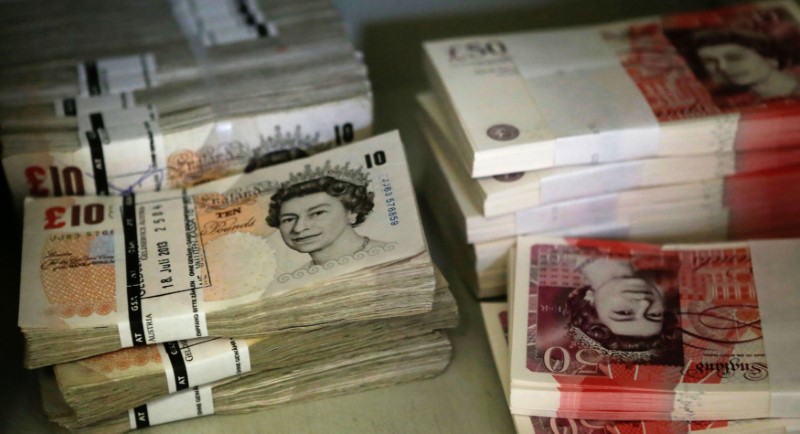The U.S. dollar edged higher in early European trade Wednesday, while sterling slumped as rapidly cooling inflation lifted expectations of Bank of England rate cuts next year.
At 03:05 ET (08:05 GMT), the Dollar Index, which tracks the greenback against a basket of six other currencies, traded 0.1% higher at 101.894, not far removed from its recent four-month low of 101.76.
Fed officials prop up the dollar
The dollar has been on the backfoot since last week’s policy-setting meeting of the U.S. Federal Reserve saw three rate cuts penciled in for 2024, although these losses have largely been contained as a series of Fed policymakers have attempted to rein in these dovish expectations.
This continued on Tuesday, with Raphael Bostic, president of the Atlanta Federal Reserve, saying there was no “urgency” now for cuts, while Richmond Fed President Thomas Barkin said whether the central bank can deliver on forecasts of rate cuts depends on how the economy performs.
U.S. economic data due on Wednesday centers around the housing market, in the form of November existing home sales.
However, the core Personal Consumption Expenditures price index, the Fed’s favorite measure of inflation, is due on Friday, and could show whether inflation has slowed enough for the Fed to begin easing policy next year.
Pound slumps after sharp fall in U.K. inflation
In Europe, GBP/USD fell 0.5% to 1.2662 after U.K. inflation plunged in November, dropping to 3.9% from 4.6% in October – the lowest reading since September 2021.
The important core annual figure, which excludes volatile food and energy prices, also dropped by an unexpectedly large amount, falling to 5.1% from 5.7%.
The Bank of England kept its main interest rate unchanged at its meeting last week, but stated rates would remain high for “an extended period.”
However, this reading has prompted traders to fully price in a rate cut by May 2024, causing the pound to fall sharply.
EUR/USD fell 0.2% to 1.0961, after German producer prices also fell more than expected, dropping 0.5% on the month in November, an annual decline of 7.9%.
This reduction in factory gate prices is expected to feed into improving German consumer sentiment with the start of the new year, with the GfK institute’s forward-looking consumer sentiment index rising to -25.1 points heading into January from a revised -27.6 the month before.
The European Central Bank also kept interest rates unchanged last week, but investors are now looking for several rate cuts from the ECB next year with the first moves potentially in the first quarter.
Yen steadies after BOJ-inspired fall
Elsewhere, USD/JPY traded 0.2% lower at 143.57, with the yen stabilizing after tumbling sharply from near four-month highs in the prior session.
The yen’s weakness came as the Bank of Japan maintained its ultra-dovish stance in its last meeting for the year, and signaled little intent to immediately begin tightening policy in 2024.
USD/CNY traded 0.1% higher at 7.1367, after the People’s Bank of China left its loan prime rate unchanged at record lows.
While the move was widely expected, it highlighted just how little headroom the PBOC had to keep policy loose and support an economic recovery in China.



